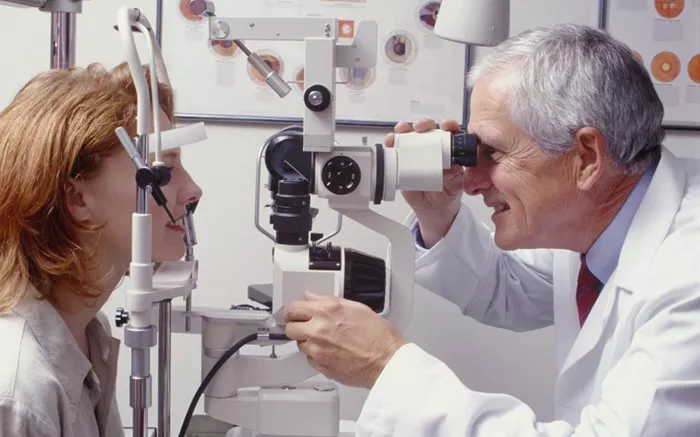A groundbreaking study, funded by a $3.3 million grant from the National Eye Institute, has been initiated at the University of Houston College of Optometry to explore eye health in patients with prediabetes and diabetes. Led by Associate Professor Wendy Harrison, the research aims to identify which patients are at the greatest risk of developing eye complications that could lead to vision loss.
Diabetic retinopathy, a condition caused by damage to the blood vessels in the retina, is the leading cause of vision loss among individuals with type 2 diabetes. This disease can progress without any noticeable symptoms, making early detection crucial. The ability to predict which patients are most vulnerable to diabetic retinopathy could significantly enhance the diagnosis and management of diabetes, a disease that has reached epidemic levels worldwide.
“Early diagnosis and location-specific detection could play a vital role in delaying the onset of diabetic retinopathy and ultimately preserving vision,” stated Harrison.
Diabetes is the primary cause of vision loss among working-age Americans. Equally concerning, approximately 44% of American adults have prediabetes, yet the impact of prediabetes on eye health remains poorly understood. Many individuals with prediabetes are unaware of their condition, making it challenging to assess when and how prediabetes begins to affect the eyes.
Although prediabetic patients are known to exhibit impaired fasting glucose, impaired glucose tolerance, and elevated hemoglobin A1c levels, significant gaps remain in our understanding of how and when these factors influence eye health.
“There are currently no eye-specific treatments for early-stage type 2 diabetes or prediabetes beyond glycemic control,” Harrison emphasized. “It is crucial that we close this knowledge gap to determine which glucose processing changes are most closely linked to eye disease.”
The research team, composed of experts from the laboratories of Rachel Redfern, Maria Walker, and Kaitlyn Sapoznik in Optometry, along with Marc Hamilton from Health and Human Performance, is conducting an unprecedented study. Their work will examine both the front and back of the eye, focusing on different types of glucose dysfunction. Key contributors to the project include Ted Zderic, Julia Benoit, Deborah Hamilton, and Bismark Owusu-Afriyie.
The study will delve into how glucose dysregulation impacts various aspects of eye health, including the vascular and neural retina, cornea, and tear film. The team will also investigate whether factors such as fat distribution, activity levels, and oral glucose tolerance in patients with type 2 diabetes are linked to, or can predict, ocular health outcomes.
“Our central hypothesis is that local retinal oxygenation is altered by changes in glucose tolerance, driving the relationship between vessel changes and retinal function in specific retinal areas,” Harrison explained.
The researchers will monitor participants over one and two years to assess ocular and metabolic changes over time, with a particular focus on prediabetes.
“We anticipate that variations in impaired glucose tolerance and phenotypes will result in detectable changes in ocular testing over time, especially in prediabetes patients,” Harrison concluded.
This study promises to yield vital insights into the early detection and prevention of vision loss in patients with prediabetes and diabetes, potentially paving the way for new approaches to managing these conditions.
[inline_related_posts title=”You Might Be Interested In” title_align=”left” style=”list” number=”6″ align=”none” ids=”11339,11335,11249″ by=”categories” orderby=”rand” order=”DESC” hide_thumb=”no” thumb_right=”no” views=”no” date=”yes” grid_columns=”2″ post_type=”” tax=””]
































